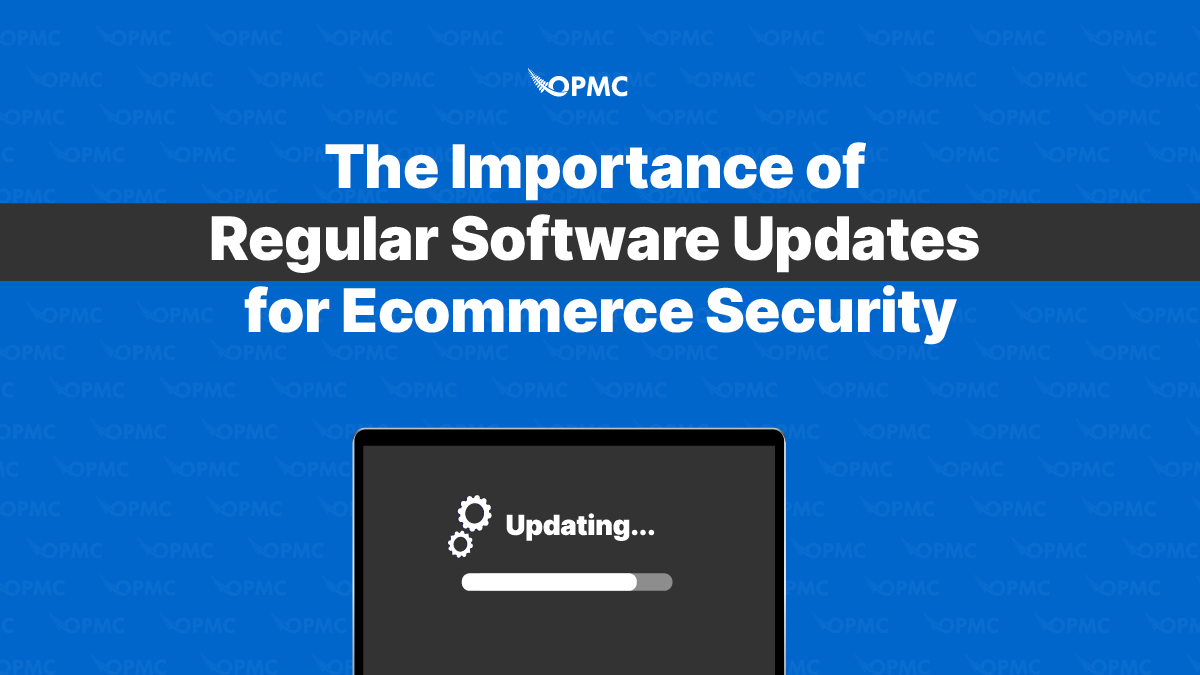The business world is in a state of constant evolution. As such, businesses must always be on the lookout for new ways to improve their operations and stay ahead of the competition.
One way this can be achieved is by regularly updating your systems’ software. This is especially critical for any WooCommerce-based online store. Not having up-to-date plugins and software for your hosting leads to website downtime, meaning fewer sales.
However, it’s not just a matter of downloading an update and then leaving it at that—you must keep your software always updated. This may seem like an obvious piece of advice, but there are many reasons why ecommerce businesses need to stay up-to-date with their software.
Since ecommerce sites have high traffic volume and often handle sensitive financial data, they’re attractive targets for cybercriminals looking to exploit them through malware or other malicious software. Cybercriminals and fraudsters often target popular ecommerce platforms because they know these systems are used daily by thousands of consumers. So, it makes sense that they would try to break into the system before someone else does!
The good news is keeping your security measures updated helps protect against these types of attacks. Let’s dive into how and why you need to practice good updating measurers for your WooCommerce online store.
The Risks of Not Regularly Updating Software
By not regularly updating software, your business is at risk of being attacked by hackers. This leaves your data, reputation, and finances vulnerable to attack.
One of the main risks is that unpatched software vulnerabilities can be exploited by cybercriminals. These vulnerabilities are weaknesses in the software code that can allow malicious actors to gain unauthorized access to a system or steal sensitive data. Cybercriminals are constantly on the lookout for these vulnerabilities. If they find one that has not been patched, they can exploit it to gain access to an ecommerce store’s system.
Another risk of not regularly updating software is the potential for high-profile data breaches. If a cybercriminal is able to exploit a vulnerability in an ecommerce store’s software, they may be able to access and steal sensitive customer data, such as credit card numbers, addresses, and other personal information. These data breaches can seriously affect your business, including financial losses, reputational damage, and regulatory fines.
Finally, not regularly updating software can also put an ecommerce store at risk of falling out of compliance with industry regulations, such as the Payment Card Industry Data Security Standard (PCI DSS). These regulations often require businesses to keep their software up to date to protect sensitive customer data, and failure to do so can result in fines and other penalties.
An excellent example of this was the 2014 data breach at eBay. Hackers were able to get past outdated security measures and gain access to more than 145 million user records. That led to a domino effect of identity theft, stolen credit cards, fraudulent orders, and millions of dollars in lost revenue for eBay and complimentary business owners.
The Benefits of Regularly Updating Software
Software updates are a way of life and a necessary part of keeping your ecommerce site secure. Software updates can fix bugs and security flaws, but they can also add new features that make your website run faster or help you stay compliant with regulations. They even help you stay ahead of the competition by improving existing functionality on your website and making it easier to use.
Ecommerce plugin updates often include security patches, which fix known vulnerabilities and make your software more secure.
For example, the Heartbleed bug was a vulnerability in OpenSSL that could allow someone to steal your data directly from your computer by tricking the security features of your system. The good news is that after this vulnerability was discovered and fixed by updating OpenSSL, many websites were able to update their servers with this security patch without any problems at all.
Staying ahead of the curve with software updates offers fantastic benefits to your online business, including:
-
-
- Security patches:Many software updates include security patches that fix known vulnerabilities.
- Proactive approach to security:Regularly updating software shows a proactive approach to security. It demonstrates that the business is preventing potential vulnerabilities and protecting its customers’ data.
- Compliance benefits:Some industry regulations, such as PCI DSS, require businesses to keep their software updated to protect sensitive customer data.
- Improved functionality:Software updates often include new features and improvements to the software’s existing functionality. By regularly updating, ecommerce businesses can take advantage of these improvements and provide a better experience for their customers.
- Bug fixes:Software updates can also include bug fixes that address issues with the software.
- Improved ecommerce reputation:The more you stay updated with any potential security flaws, the better the customer experience. This leads to a more robust online reputation as a reliable provider of goods and services with little to no risk for the consumer.
-
Best practices for managing software updates
To ensure that your software updates are deployed in a timely, efficient manner, it is recommended to use an automated update management tool. Software, like any other piece of hardware, can have bugs and vulnerabilities that a hacker can exploit. Because of this, it’s essential to keep all your software up to date so that you can protect yourself from potential hackers, fraudsters, and cyber-attacks.
You should test updates before deploying them to a live environment. You may think it’s enough to test updates on your development site, but this isn’t always the case.
If you’ve ever had an update go wrong in production (and who hasn’t?), you’ll know that there’s nothing quite like that sinking feeling when something bad happens, and you have no idea why. It can be hard to track down the root cause if testing wasn’t thorough enough beforehand or if it was tried out on the live site instead of a staging or development one.
In an ideal world, you’d be able to manually update all your software on a regular basis. But like many other things in life, it’s hard to find the time or energy to do this when so many other business items need doing.
Fortunately, WordPress and WooCommerce make it easy to manage auto-updates. This way, your team can create and follow a simplified security policy that doesn’t require endless manual labour.
An Excellent Auto-Update Security Option
Our team at OPMC has developed a robust Security for WooCommerce plugin that you can set to auto-update on its own. This way, you’ll benefit from an easy-to-use option that prevents and blocks orders from risky IP addresses, countries, regions, and give you notifications of any risky behaviour so you can adapt your security policies on the fly.
We have spent years operating in the ecommerce space and understand the importance of automation in potential revenue growth. Using a powerful tool like our WordPress plugin ensures you get the strength of IT experts running in the background of your online store 24/7, without ever needing a break! Visit our plugins store today and download a copy to get the peace of mind you need to focus on other critical business operations.
Conclusion
If you are an ecommerce business, it is essential that you ensure that all your software is up-to-date with the latest security patches. Failure to do so can lead to serious data breaches and financial loss.
By following best practices for managing software updates, businesses can minimize the risk of experiencing a breach that could damage their reputation and cause significant losses in revenue or customer loyalty.
An auto-update option like our Security for WooCommerce plugin makes this process much more manageable. You’ll spend more time improving the customer relationships you build instead of dealing with expensive or damaging fraudulent transactions.
Download Security for WooCommerce plugin today
This Plugin prevents and blocks orders from risky IP addresses, countries, regions, and give you notifications of any risky behaviour so you can adapt your security policies on the fly.




